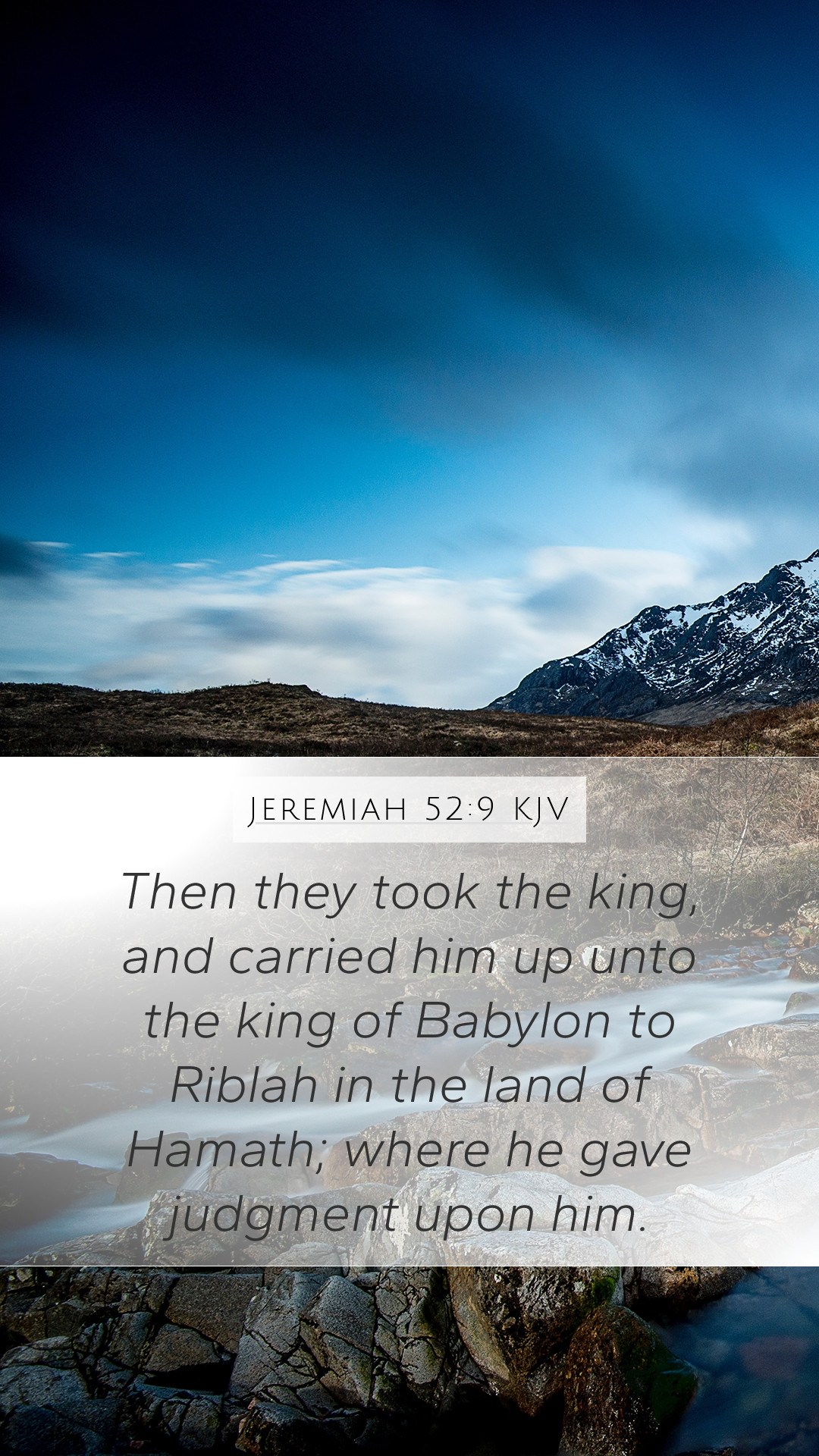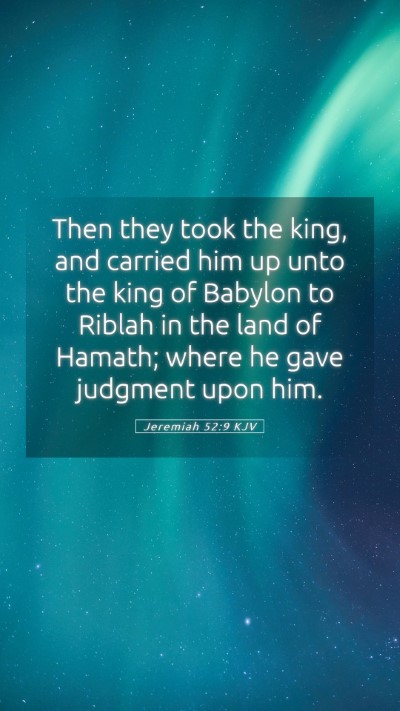Bible Verse Meaning of Jeremiah 52:9
Verse: Jeremiah 52:9 states, "Then they took the king, and carried him up unto the king of Babylon to Riblah in the land of Hamath; where he gave judgment upon him." This verse captures a significant moment in the history of Israel, particularly in the context of the Babylonian conquest.
Summary of Insights
This verse describes the capture of Zedekiah, the last king of Judah, and his subsequent judgment by the king of Babylon. The implications of this event are profound both for the people of Judah and the unfolding narrative of the exile.
- Historical Context: Jeremiah, as a prophet, provided warnings about the impending judgment and captivity due to the disobedience of the people of Judah. This moment serves as a culmination of those prophetic messages.
- Judgment and Authority: The act of carrying Zedekiah to Babylon symbolizes the total defeat of Judah and the transfer of power. This not only highlights Babylonian supremacy but also God's sovereignty in allowing these events for His purposes.
- Fulfillment of Prophecy: Zedekiah’s fate can be seen as a fulfillment of earlier prophecies in the book of Jeremiah and others, illustrating the seriousness of divine warnings and the consequences of rebellion against God.
Bible Verse Commentary
The commentaries from influential theologians shed additional light on this verse:
Matthew Henry Commentary
Matthew Henry emphasizes the significance of this event as a result of Zedekiah’s disobedience. He notes that the king of Babylon gives judgment, which serves as a metaphor for God's ultimate authority and the accountability of rulers.
Albert Barnes’ Notes on the Bible
Barnes elaborates on the character of Zedekiah, highlighting his initial loyalty to Babylon under a covenant but ultimately his failure to trust in God. This led to his capture and the harsh judgment from Nebuchadnezzar.
Adam Clarke's Commentary
Clarke provides insights into the geographical and political implications of Riblah, stressing its significance as a military hub for the Babylonians. He also reflects on the psychological aspect of defeat, as Zedekiah moved from being a king to an imprisoned man, illustrating the reality of God's judgment on unfaithfulness.
Applying Bible Verse Insights to Daily Life
Understanding this verse offers numerous applications for believers today. It emphasizes:
- **The importance of obedience to God**: Just as Zedekiah's failure led to dire consequences, believers are encouraged to remain steadfast in their faith and adherence to God’s word.
- **The sovereignty of God in historical events**: Reflecting on how God orchestrates events for His purposes reassures believers that even in difficulty, divine oversight is present.
- **The nature of accountability**: Leaders today, both in spiritual and secular realms, can learn from Zedekiah’s downfall about the weight and impact of their decisions.
Related Bible Cross References
- Jeremiah 39:6-7: This passage recounts the fate of Zedekiah’s sons and the judgment that follows his capture.
- 2 Kings 25:1-7: This narrative provides a wider context of the siege of Jerusalem and the subsequent events leading to the exile.
- Ezekiel 12:12: This verse prophesies about Zedekiah’s fate and captures the totality of his downfall.
- Daniel 1:1-2: Mentioning the Babylonian conquest and how it relates to the Jewish exiles.
In conclusion, Jeremiah 52:9 serves not only as a historical account but also offers valuable lessons about faith, leadership, and obedience that are relevant to all believers. It encourages a deeper understanding of Scripture as well as an appreciation for the biblical exegesis that speaks to the human condition and divine oversight.


